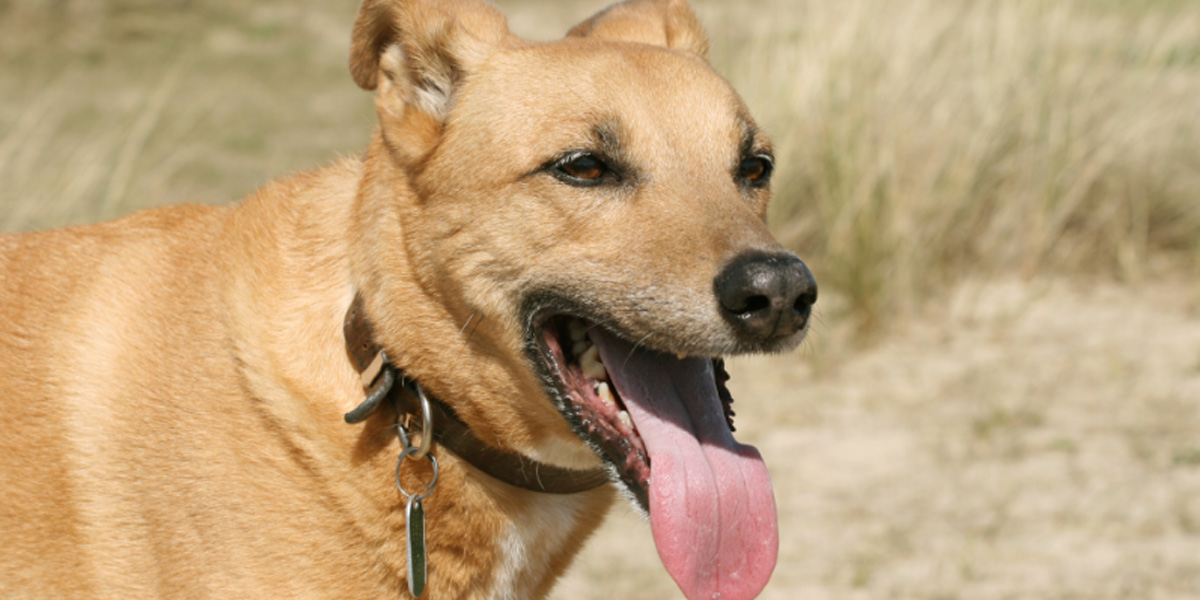
Does it seem like your dog can't relax? Are they in distress, breathing heavily, and pacing about? If your dog is panting and restless, they may be experiencing anxiety, or they may have labored breathing due to an acute health issue.
Here are some possible reasons why your dog might be acting this way. If you can't confirm the cause, and your dog's symptoms persist, you should see your veterinarian, or an emergency vet if it's after hours.
Could Your Dog Be Anxious?
Dogs are usually very expressive. You can typically tell what's scaring them. Sometimes, though, they may be afraid of something they can't see. They may feel like they can't escape. This is common when there are fireworks going off in your neighborhood, or a thunderstorm has rolled in.
Contrary to an old, popular belief, comforting your dog when they're anxious will not reinforce anxious behavior. Your dog needs you to provide comfort. That way, they'll trust that you will always keep them out of danger, and that they have nothing to be afraid of.
If you discover that fireworks or thunder is the cause of your dog's restlessness, try playing white noise or soft music to drown out those scary sounds. A 2017 study actually showed that soft rock and reggae were the most effective genres for helping dogs relax.
Does Your Dog Have Bloat?
Gastric Dilatation and Volvulus (GDV), also known as "bloat," is a life-threatening, acute condition most commonly seen in large, barrel chested dogs, though it can happen to any breed.
"Bloat" is when a dog's stomach fills with gas and twists. The dog's stomach distends noticeably on the left side, and they will try, and fail, to vomit, and they may foam around the mouth.
If left untreated, within a few hours, the stomach can continue to swell and may rupture. The swelling can also prevent blood from circulating through vital organs, which will ultimately lead to death. With emergency surgery, your dog has a good chance of survival.
Did Your Dog Eat Something Toxic?
The presence of a toxin in the body can cause a wide range of symptoms, including heavy panting and restlessness. Some of the most common causes of poisoning in dogs include: antifreeze, medications, chocolate, grapes or raisins, and pesticides.
Chocolate toxicity occurs when your dog overdoses on theobromine and caffeine, both found in high concentrations in dark chocolate. These chemicals cause hyperactivity and restlessness. In severe cases, it causes a rapid heart rate, seizures and even heart failure. Many dogs who eat chocolate will eat the wrapper, too, so you may not necessarily find evidence of your dog's toxic snack.
If you suspect your dog has been poisoned, even if you're unsure or don't know the cause, rush to your vet or emergency vet clinic.
Other Symptoms To Look Out For
Any time you're concerned about your dog's immediate health, you should check the color of their gums. Their gums should be pink, though dogs with black markings may have black pigmentation on their gums, too. Any color other than pink - white, yellow, or red - is a sign of a medical emergency.
If possible, check your dog's temperature. It should be between 101 and 102.5 degrees Fahrenheit (38.3 to 39.2 degrees Celsius). Anything higher or lower than that is a sign of an emergency.





































